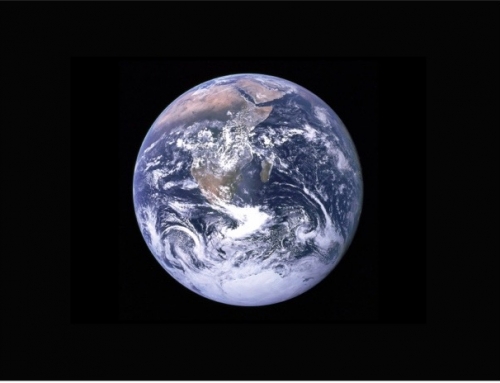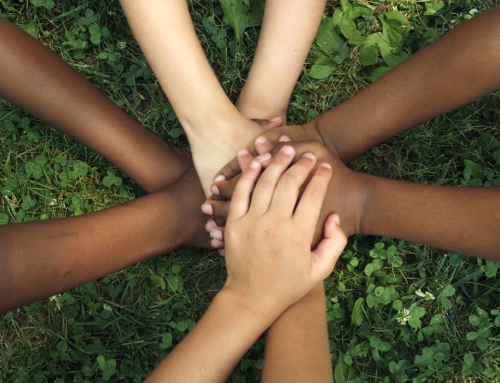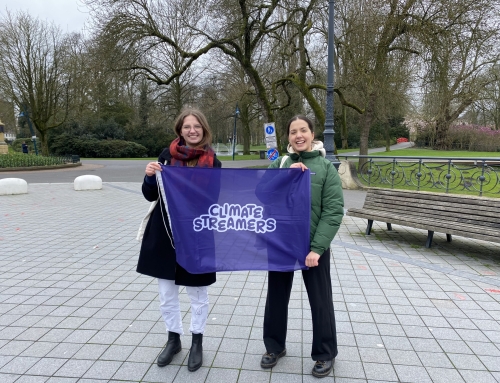The Emotional Toll of Climate Change

Have you ever found yourself in a conversation with someone deeply concerned about the state of our planet? Perhaps you’ve had a quick chat or a more intense discussion. Nevertheless, chances are you’ve encountered someone carrying a lot of emotions and concerns related to climate change. In recent years, the term “climate anxiety” has gained traction as more and more people started to identify with these words. But what does this term mean, and why is it becoming increasingly prevalent?
A Brief Introduction to Climate Anxiety
When I approached climate activism several years ago, I quickly became trapped in a loop of anxiety and fear. As I dove deeper into the issue by reading the news and watching documentaries, I realized just how imminent the climate emergency was and how limited my contributions seemed. Realizing that many of my previously held beliefs and habits, such as consuming meat and buying cheap clothes, contributed to the problem left me feeling wholly guilty and lost.
Climate anxiety, also known as eco-anxiety, refers to the psychological distress and mental health impacts caused by the severity and urgency of the climate crisis (Wu et al., 2020). Although institutions may have varying definitions of climate anxiety, it typically manifests as anxiety, depression, anger, hopelessness, guilt, and a sense of loss or grief (Friends of the Earth, 2020). While anyone can experience climate anxiety, it is most commonly reported among young people. In fact, recent surveys indicate that up to 85% of youth are affected in some way (The Carbon Almanac Network, 2022). Generation Z, often called “the climate generation,” is particularly affected, as they witness the consequences of past actions and feel pressured to take action for a better future (Ray, 2020).
Climate anxiety is also characterized by the anticipation of potential future impacts of the climate crisis, which can lead to feelings of existential dread and fear. For instance, individuals may question whether to have children, as future generations may face even more severe consequences of climate change (Ray, 2020). The uncertainty and lack of control over the future lead to anxiety and hopelessness, making it challenging for individuals to take action towards mitigating climate change.
My Experience With Climate Anxiety
 Navigating these emotions was a complex and tumultuous process, guided by guilt, stress, and self-doubt. Though I read books* that provided me with tools for managing these feelings, such as spending time in nature and daily journaling (Ray, 2020), time, experience, and personal growth ultimately helped me find my balance. I started looking for a community of like-minded individuals experiencing similar emotions and could provide a supportive and empowering environment. However, it took a lot of work in The Netherlands to find movements and communities actively addressing these topics. Despite the existence of climate movements like Extinction Rebellion and Youth for Climate, which are actively addressing this issue and encouraging public discussions, I struggled to find a community that was specifically dedicated to engaging in activities aimed at tackling climate anxiety, such as Force of Nature in London** (UK). Furthermore, participating in activities with Extinction Rebellion and similar groups only intensified my feelings of urgency, anxiety, and fear, which I already struggled with. Due to the strong language, communication and actions, I could not find a role where I felt comfortable enough to contribute and be fully present.
Navigating these emotions was a complex and tumultuous process, guided by guilt, stress, and self-doubt. Though I read books* that provided me with tools for managing these feelings, such as spending time in nature and daily journaling (Ray, 2020), time, experience, and personal growth ultimately helped me find my balance. I started looking for a community of like-minded individuals experiencing similar emotions and could provide a supportive and empowering environment. However, it took a lot of work in The Netherlands to find movements and communities actively addressing these topics. Despite the existence of climate movements like Extinction Rebellion and Youth for Climate, which are actively addressing this issue and encouraging public discussions, I struggled to find a community that was specifically dedicated to engaging in activities aimed at tackling climate anxiety, such as Force of Nature in London** (UK). Furthermore, participating in activities with Extinction Rebellion and similar groups only intensified my feelings of urgency, anxiety, and fear, which I already struggled with. Due to the strong language, communication and actions, I could not find a role where I felt comfortable enough to contribute and be fully present.
My Contribution to this Challenge
Therefore, establishing my non-profit organization, Climate Streamers, seemed a natural next step in my search for solace and community. If you’ve been following my previous blogs, you might already know our mission and why we exist, but let me refresh your memory.
Climate Streamers Foundation is a non-profit organization and movement that aims to empower people, particularly youth, by using an alternative approach and promoting hope. Our approach involves incorporating leisure elements like games and music and values such as inclusivity, positivity, appreciation, and depolarization. This unique combination of ingredients aims to inspire a wider audience and make climate action more accessible and engaging. By empowering young people with this approach, we encourage action and address the growing mental health concerns caused by the climate crisis.
We put our approach into action through our card game, for example, enabling individuals, groups, and organizations to have safe and open discussions about the climate crisis. Our card game is designed to encourage players to move beyond assumptions and prejudices that often shape our conversations, not only when it comes to climate change. Through a series of cards, participants share pieces of their stories and experiences, allowing them to connect on a deeper and more personal level. People can find support, share tips, and learn from each other by sharing personal stories. The game creates a safe space for everyone to talk and find support from each other and reflects our values and approach. By tapping into more people’s emotions and stories, we help create a stronger sense of community. This is crucial in addressing climate anxiety and establishing sustainable, long-term communities that are resilient enough to continue believing in a better future. As climate change persists, developing strong communities that can carry the emotions, traumas, and concerns that continue to grow is essential.
Tell Me More!
At this point, you may have even more questions about us and our game. Nevertheless, in my upcoming blog, I will make sure to explore this topic more, and I will dive deeper into the role of gamification regarding environmentalism. Keep an eye out for my next post, and stay tuned for more!
* You can find some inspiring books in my previous blog. Two specific books that helped me learn how to deal with climate anxiety are A Field Guide to Climate Anxiety (2020) by Sarah Jaquette Ray and The Book of Hope (2021) by Douglas Carlton Abrams and Jane Goodall.
**Force of Nature is a youth-led non-profit organization that helps “young people turn climate anxiety into action [and works] with leaders to drive intergenerational solutions”.
References
Force of Nature | Mobilising mindsets for climate action. (z.d.). Force of Nature. https://www.forceofnature.xyz/
Over two-thirds of young people experience eco-anxiety as Friends of the Earth launch campaign to turn anxiety into action. (2020). Friends of the Earth. https://friendsoftheearth.uk/climate/over-twothirds-young-people-experience-ecoanxiety-friends-earth-launch-campaign-turn
Ray, S. J. (2020). A Field Guide to Climate Anxiety: How to Keep Your Cool on a Warming Planet. Univ of California Press.
The Carbon Almanac Network. (2022). The Carbon Almanac – It’s Not Too Late. Portfolio / Penguin.
Wu, J. Z., Snell, G., & Samji, H. (2020). Climate anxiety in young people: a call to action. The Lancet Planetary Health, 4(10), e435–e436. https://doi.org/10.1016/s2542-5196(20)30223-0





